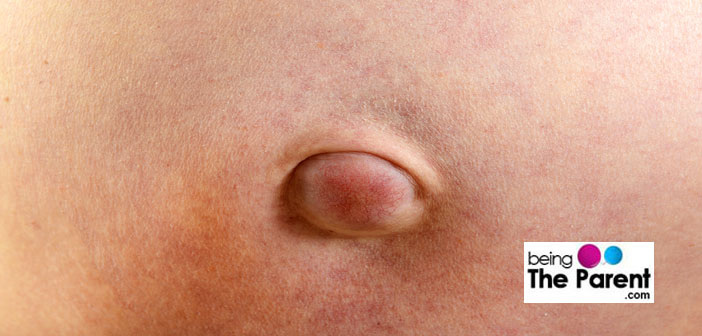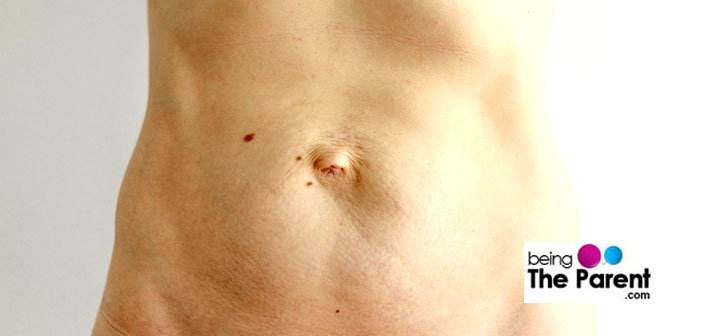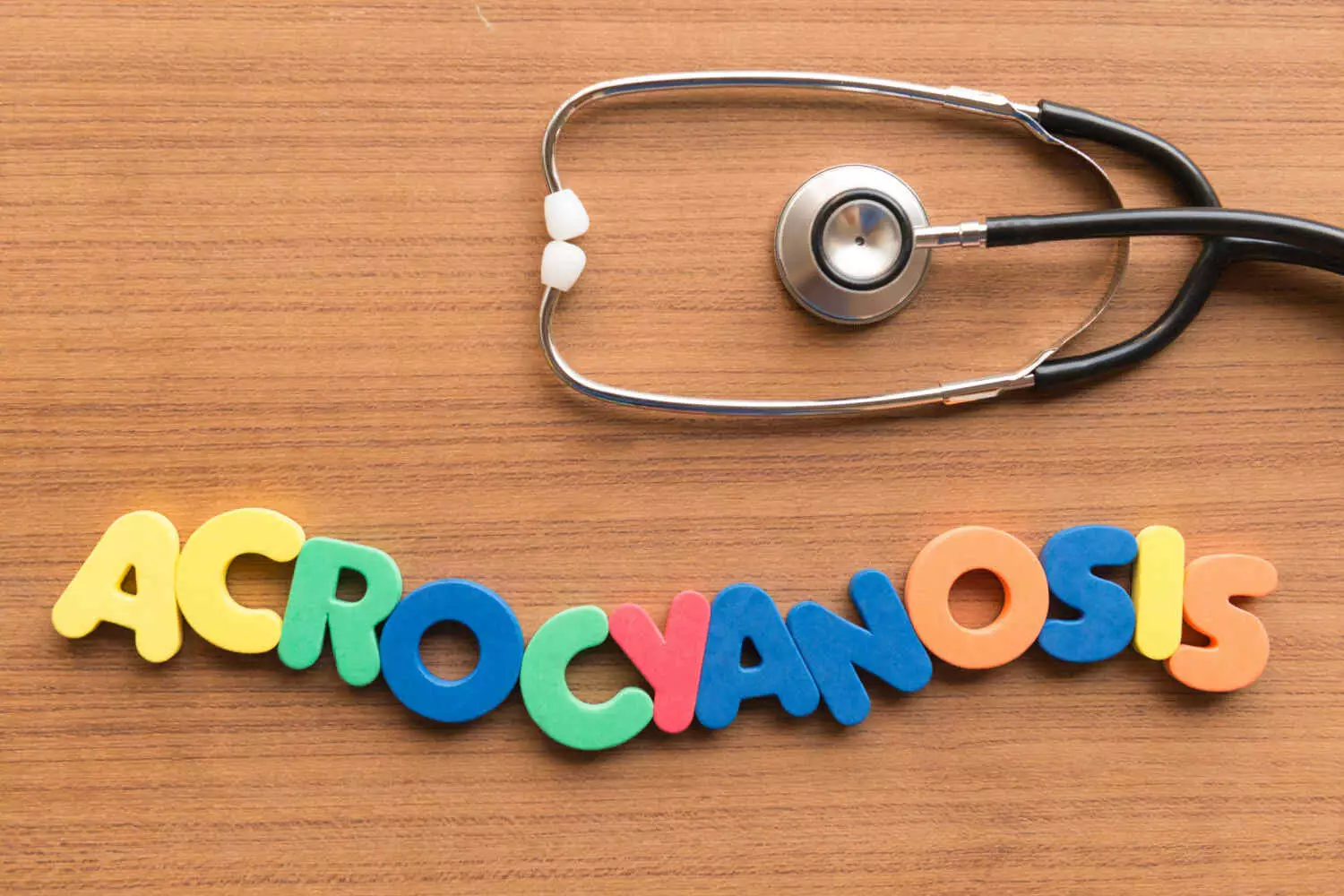
Umbilical Hernia After Pregnancy – Causes, Symptoms, Non-surgical Treatments
4 min readWritten by Editorial Team

There are a lot of changes you undergo physically during your pregnancy and postpartum period. The majority of these changes will fade away as time passes by following a healthy diet and well-designed exercise. But, there are certain changes need medical attention to get rid of. One of them is postpartum umbilical hernia, related to the terms diastasis recti and Prolapse.

- What Is An Umbilical Hernia?
- Why Does An Umbilical Hernia Develop After Pregnancy?
- What Causes Postpartum Umbilical Hernia?
- What Are The Symptoms Of An Umbilical Hernia?
- How Is Postpartum Umbilical Hernia Treated?
- Non-surgical Treatments For Umbilical Hernia After Delivery
- What Happens When Postpartum Umbilical Hernia Is Left Untreated?
What Is An Umbilical Hernia?
Basically, the sticking out of the umbilicus (belly button) is known as an umbilical hernia. In the majority of instances, it will not cause any pain. You will notice a bulge, protrusion in the shape of the thumb, which will be tender to touch. You may feel it more if and when you strain your abdominal muscles, like when you lift something heavy, cough or sneeze.
Why Does An Umbilical Hernia Develop After Pregnancy?
When you are pregnant a pressure is developed inside your body due the bulging uterus. The body has a tendency to push this pressure out. This pushing occurs outwards and downwards. Due to this pressure, parts of an internal organ or tissues that surround abdominal wall will push right through the weakest point in the abdominal wall – the belly button. A protruding belly button is this seen. You may also find it tender to touch with a dark tint to its appearance.
What Causes Postpartum Umbilical Hernia?
Anything that contributes to developing the pressure inside your abdomen high can be the main causes of an umbilical hernia. Some common causes are:
- Multiple pregnancies: If you have conceived more than one child in one pregnancy or if you are pregnant for several times, the chances of the weakening of muscles increase, thereby chances of an umbilical hernia also increases
- Accumulation of fluids: Excessive accumulation of fluids between the layers peritoneum of the abdomen can cause an umbilical hernia. (Peritoneum has two layers – one which covers the abdominal wall and other which covers the abdominal organs.)
- Straining: A prolonged cough, lifting heavy things, continuous sneezing due to some allergy, can cause strain and thus can be a contributing factor to developing an umbilical hernia
- Being overweight: Being obese or overweight weakens the elasticity and tone of the abdominal muscle. This will increase the risk of an umbilical hernia
- A very long labor while delivering: A very long labor can put extra pressure on the abdominal area, resulting in the formation of an umbilical hernia
- Weakened core muscle: Core muscle is a collective term for the muscles that support the spine, the waist, the lower back and most importantly the abdomen. Transverse abdominis is the deepest abdominal muscle. Its function is to support the entire abdominal and pelvic region and regulate the pressure within it. The weakening of these muscles can cause umbilical hernia

What Are The Symptoms Of An Umbilical Hernia?
- The most common symptom is the swelling in the belly button
- Nausea and vomiting is seen when the intestine is strangled due to an umbilical hernia
- Pain in the abdomen, which increases when you sneeze, cough, lift heavy objects. Pain may even be noticed when you stand for a long time or when you are constipated
How Is Postpartum Umbilical Hernia Treated?
- Open repair: An umbilical hernia can be treated by undergoing an open surgery to push the tissues back to its place and strengthen the weakened part of the abdomen by using a specially designed synthetic mesh. (In some severe cases only open repair is possible)
- Laparoscopic repair: An umbilical hernia also can be treated by undergoing a laparoscopic repair. Its advantages are:
- Strong repair
- Lesser chances of the hernia to come back
- Very little pain
- Much better cosmetic appearance
- Minimal recovery time
Usually, six weeks of restriction for weight lifting or any acts that strain the abdomen is insisted.
Non-surgical Treatments For Umbilical Hernia After Delivery
You can try the following techniques to relieve small umbilical hernia after delivery.
- Regular exercise: Choose the exercise that won’t put pressure on your abdomen or pelvic region. Breathing exercise will help you to find your transverse muscle. Choose the exercises that strengthen these muscle. Yoga, meditation, breathing exercise are found to be effective for an umbilical hernia
- Be aware: Know and learn how your body is functioning. Then figure out the stress areas and arrive on relieving strategies. No, it will not be so hard always, but you need to ensure that your core muscle practices the right way to work
- Healthy postures: The way you carry your body every day has a role in regulating the pressure inside your abdomen. Always choose a posture that keeps your body in a straight line. Using high heel shoes when you are diagnosed with an umbilical hernia should be avoided as it put extra pressure on your abdomen. Always, always stand the right way
What Happens When Postpartum Umbilical Hernia Is Left Untreated?
For small hernia which are not noticeable, no treatment is needed. But larger hernia is dangerous when left untreated as there are chances that the intestine will get penetrated into the area of hernia or the blood supply to the penetrated area can be interrupted. Therefore, the part of intestine inside the hernia can get damaged. A large hernia also causes severe pain.

Editorial Team,
With a rich experience in pregnancy and parenting, our team of experts create insightful, well-curated, and easy-to-read content for our to-be-parents and parents at all stages of parenting.Read more.
Responses (0)
Want curated content sharply tailored for your exact stage of parenting?
Related articles

Acrocyanosis in Newborns – What is it, Causes and Symptoms

Teething Tablets For Babies – Are They Safe, Side Effects and Alternatives

Top 6 Best Counting Books For Babies in First Year

Pregnancy Passions: Rediscovering Intimacy on the Parenthood Journey

Liver Diseases in Babies – Causes, Symptoms and Treatment

Bedtime Fading Method of Sleep Training Your Baby – Know All About it
Sponsored content
Discover great local businesses around you for your kids.
Get regular updates, great recommendations and other right stuff at the right time.





